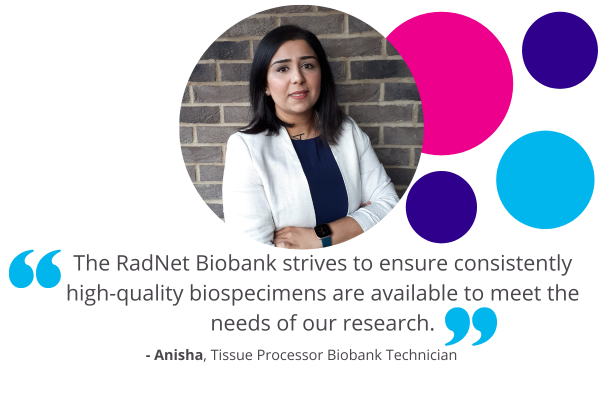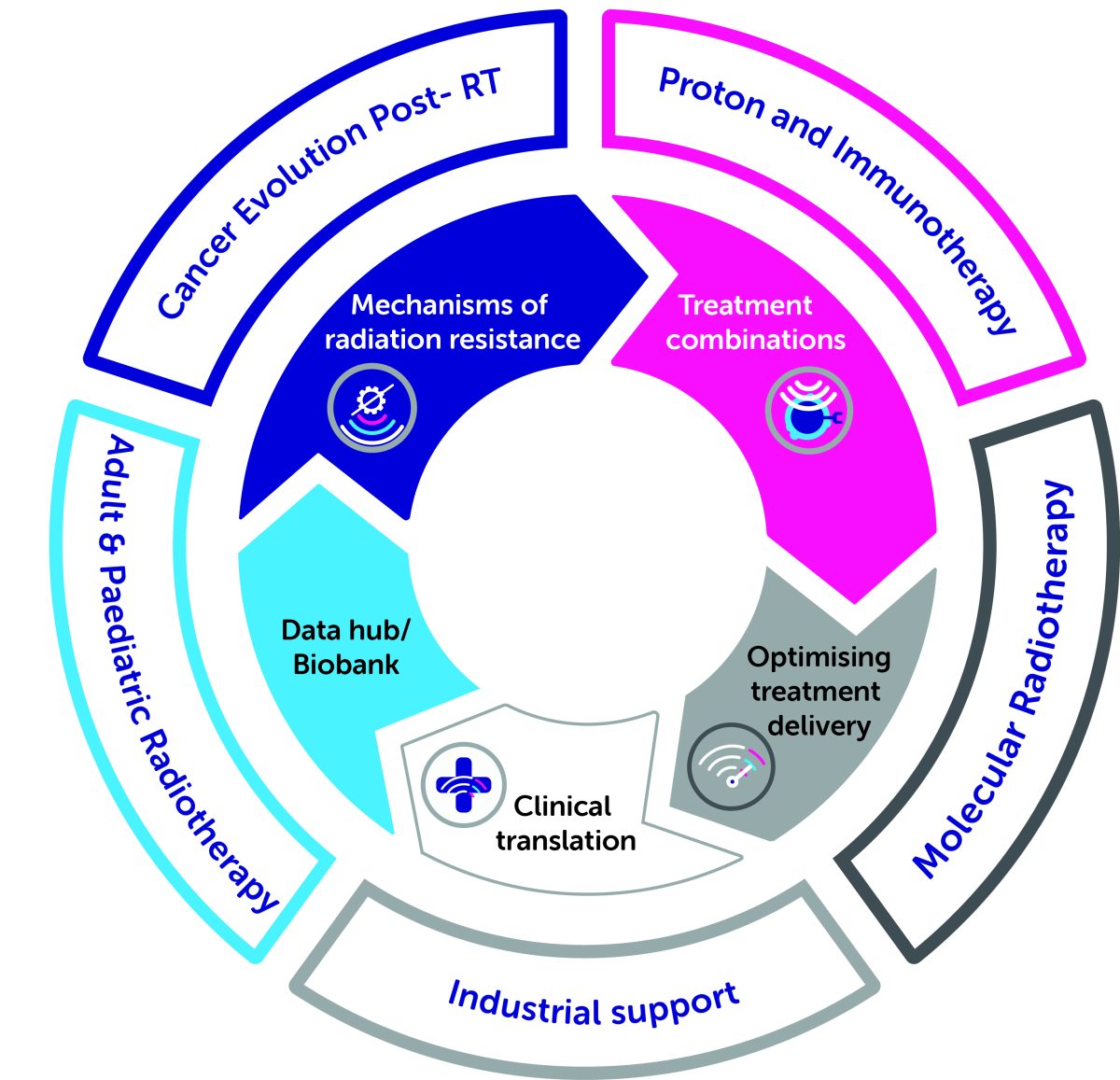Our Research Strategy
Our research is focused on optimising radiation therapies to improve patient outcomes, by feeding results into an accelerated clinical translation pipeline.
By sourcing expertise across discovery, translational and clinical research, and cultivating a modern research landscape aimed to spawn new cross-disciplinary interactions, we aim to unlock the full potential of radiotherapy for patient benefit.
The research hub will gather detailed information on three key areas:
• how tumours resist radiation and non-target toxicities
• ways to target tumours more precisely using new radio-sensitizers (DNA repair inhibitors)
• immunotherapy agents.
These will be supported by large-scale data collation, analysis and predictive computation.

Core research themes
Our research focus is predicated on the view that cancer cure by radiotherapy can be improved by concentrating on the following themes:
- Radiation resistance: To form a detailed mechanistic understanding of the roles of stem-like cancer cells, the tumour microenvironment and DNA damage and repair in clinical radiation resistance
- Radiation combinations: To understand the effect of radiotherapy on the immune response in the context of the entire tumour microenvironment with a view to synergistic combination therapies
- Optimise treatment delivery and strategies: including FLASH, proton therapy and molecular radiotherapy
These are supported by, and feed into, two cross-cutting themes:
- Computational cancer: To build a comprehensive platform for radiotherapy data and apply artificial intelligence approaches to interrogate and predict clinical outcomes.
- Clinical translation: To establish a clinical trials platform, the RadNet Trials Hub, to ensure a strong forward and reverse translational element to every theme, with input from patient and public involvement (PPI) members experienced in radiotherapy trials
These draw on national and international multidisciplinary collaboration and modern research methods that build on technological advances and infrastructure investments. Part of our strategy involves supporting individual researchers through seed funding, allowing them to generate preliminary data to set them up to later apply for larger grant bids and initiative cross-disciplinary research.

